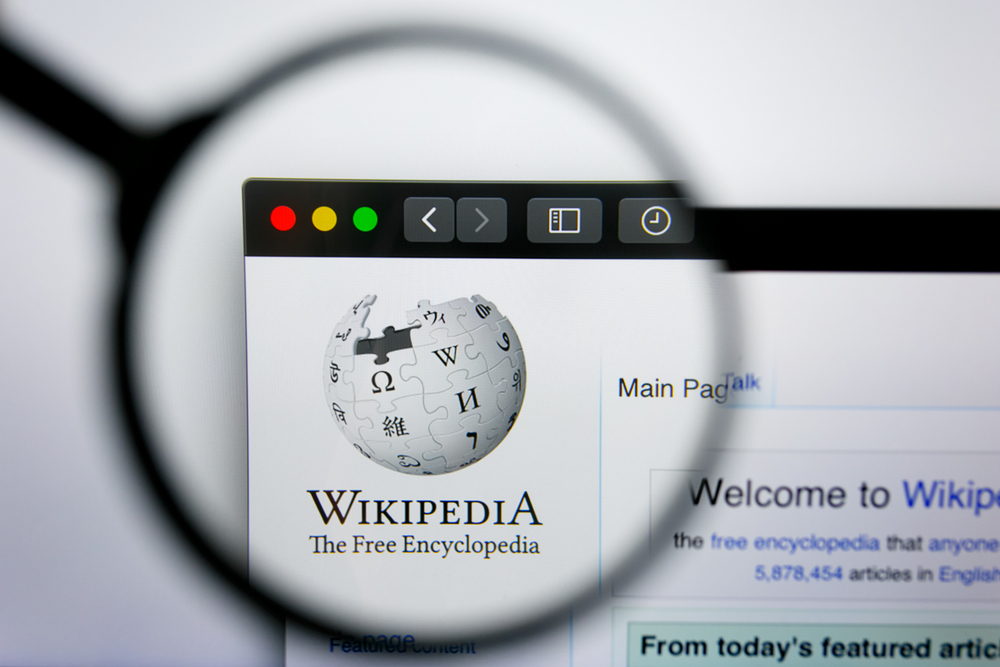
Monday April 22, 2024
Should we engage with clients’ Wikipedia pages?
“Wikipedia lowkey never recovered from the negative PR campaign English teachers ran. The damage was fatal, I fear.” Wrote X user @itszaeok. It seems that many people shared the same sentiments, with the Tweet quickly garnering 10,000 retweets and 166,000 likes.
Despite this, Statistica reported that Wikipedia had over 4.3 billion unique global visitors in December 2023 alone, exhibiting that the online encyclopedia is still a popular choice for those who seek information.
With such substantial numbers, many are aware of the importance of managing the information that is presented on the website. Particularly, those in the business of reputation, such as PR agencies, have historically been called upon by clients to write positive Wikipedia articles or edit existing ones by taking out negative content.
In this blog, we will examine the ethical implications of whether PR practitioners should edit and engage with client Wikipedia pages.
The Wikipedia vs Wiki-PR scandal
One of the most notable PR-related Wikipedia scandals can be seen in the 2013 case of Wiki-PR.
Over a decade ago, Wikipedia’s own volunteer editors launched a year-long investigation into ‘sockpuppet’ accounts, which are accounts with false online identities used for deceptive purposes, such as praising, defending or supporting an individual or an organisation to manipulate public perception.
The findings suggested that Wiki-PR had created over 300 sockpuppet accounts that were used to edit Wikipedia entries for its clients, including the communications company Viacom. In response, Wikipedia sent a cease-and-desist letter to the PR firm as their paid advocacy breached the website’s terms of use.
While Wiki-PR were at the front of the scandal, they were not the only PR firm to do so, and the PR industry was under scrutiny. A year later, eleven top PR firms, including Ogilvy & Mather, Edelman and FleishmanHillard, released a joint statement regarding their commitment to adhering to Wikipedia’s editing policies.
What are the guidelines?
Wikipedia itself has three core content policies covering the need for neutrality, verifiability of information and materials, and the prohibition of original thought, as all content must be attributable to a reliable, published source.
According to the Chartered Institute of Public Relations( CIPR), PR practitioners should avoid removing negative content about their clients from a Wikipedia article if it is tied to a reliable, published source, as it skews the perception of neutrality and violates Wikipedia’s three core content policies.
Wikipedia editors also assess how notable an article is. This means that if our clients are not notable enough, we should avoid creating an article that its editors would most likely delete. In that case, we should concern ourselves with gaining more coverage and notability for our client before writing a Wikipedia article.
Beyond Wikipedia’s own guidelines, in light of the infamous Wiki-PR controversy, the CIPR, as a governing body of the PR industry, originally released the Wikipedia Guidance that “includes a number of recommendations and has gleaned global support in recognition of its potential for building mutual understanding between Wikipedians and public relations practitioners.” This guide was updated two years after its publishing date and has received support and backing from the PRCA.
The guide, which covers steps on how to engage with a Wikipedia article, states that editing should always be done in an honest and transparent manner. In the context of the PR industry, practitioners ought to register on Wikipedia and establish a user page that includes their workplace information and a client list. It also highlights transparency through the need to openly disclose who we work for, our clients, and any affiliations on our user pages where we get paid or expect payment.
If something has been written about our clients, PR practitioners are also urged to interact directly with the original editor of a page. There are instances in which they do not respond, but in that case, the next best course of action would be to proceed to a relevant noticeboard. These noticeboards are watched by groups of people, meaning that they are often very active and, thus, quick to offer help.
If there are sensitive situations where disclosing our identity may escalate a challenging issue, we could email info-en@wikimedia.org with our concerns. A small group of Wikipedians who receive our email could act as our advocates within the community and offer advice.
If the issue has already escalated to the point where repetitive edits, otherwise known as edit wars, are taking place, then we can apply for our client’s pages to be protected. There are varying degrees of protection, such as semi-protection, where editors who want to edit a page must meet requirements, or full protection, where only administrators can make edits.
One thing we need to understand is that Wikipedia is not a news service, and, in turn, we cannot expect it to be the most up-to-date platform that includes information that has just been published or announced.
In addition to the decade-old best practice document, the CIPR has introduced a new skills guide titled ‘How to avoid PR disasters,’ co-authored by Wikipedia editors, CIPR CEO Alastair McCapra, and Dr Paul Wilkinson FCIPR. It would be in the best interests of PR practitioners who operate in the realm of Wikipedia to familiarise themselves with both Wikipedia’s guidelines and the guides introduced by the PR industry.
Curzon PR is a London-based PR firm working with clients globally. If you have any questions, please feel free to contact our Business Development Team bd@curzonpr.com







Follow us